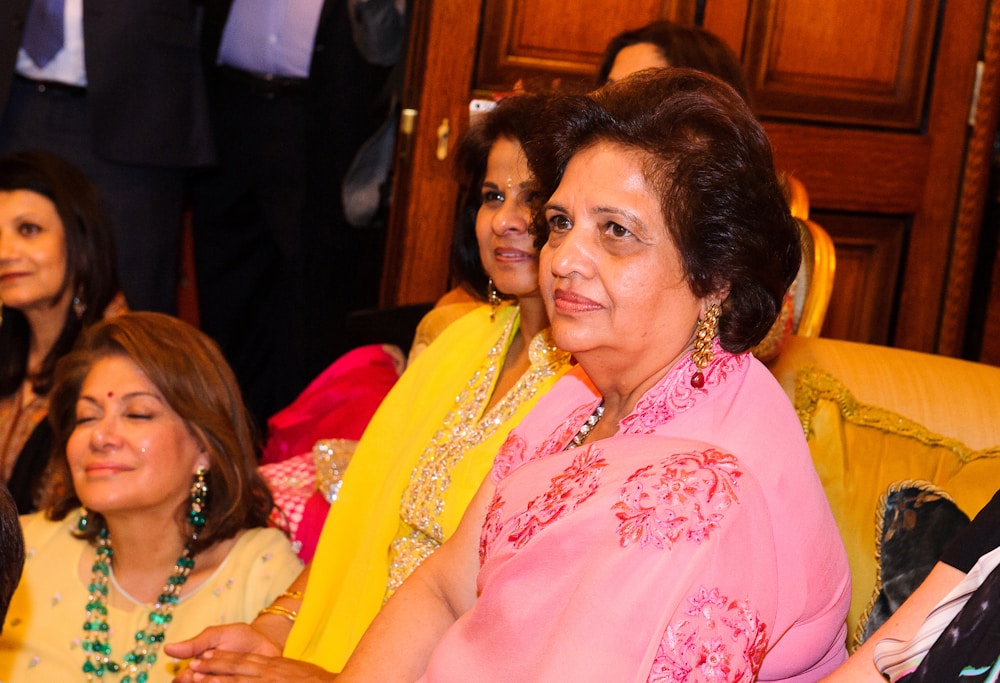There’s a familiar spark in Kamala Harris’s voice when she says she’s not done. You can hear both the fatigue and the fire. After years in the national spotlight, a hard-fought presidential campaign, and a historic term as vice president, she sounds like someone who’s been through a storm and still believes in sunlight.
Her words land softly but carry weight. For those who counted her out, it’s a reminder: Kamala Harris isn’t walking away from the fight. She’s re-entering it—on her own terms, in her own time.
A Career Built on Persistence
If there’s one constant in Kamala Harris’s story, it’s persistence. She’s the daughter of immigrants who built her way up from San Francisco’s local politics to the U.S. Senate and the vice presidency. Each rung of that climb came with resistance. And every time, she found a way through.
You could say her public life began in the courtroom, where she learned to think on her feet and challenge power with poise. As district attorney and later California’s attorney general, she made her name by taking on cases that tested her patience and her values. She learned how to listen when tempers ran hot and how to argue when the facts mattered most.
By the time she entered national politics, she had already lived through decades of criticism—too cautious for some, too bold for others. But every step hardened her sense of purpose.
That’s why, even after a bruising national race, she can say, without hesitation: I’m not done.
The Road After 2024
When the 2024 presidential race ended, Harris could have stepped away quietly. She could have written her memoirs, joined boards, and given lectures about leadership and equity. She could have chosen rest.
Instead, she chose reflection.
Losing a national campaign reshapes a person. It’s public and personal all at once. Every move gets dissected; every phrase gets replayed. For Harris, the experience wasn’t just about strategy—it was about stamina.
She learned that national campaigns aren’t built on headlines. They’re built on faith—faith in people showing up, in policies being heard, in the idea that progress doesn’t vanish just because the vote count swings the other way.
So now, when she says she’s not done, it’s not defiance. It’s renewal.
What “Not Done” Really Means
“I’m not done” isn’t just about another campaign. It’s about unfinished business.
For Harris, the phrase captures a broader idea: the belief that her voice still has a role to play in shaping America’s direction. She’s seen too much to sit back.
It’s easy to think she’s talking about power. But if you listen closely, it’s about purpose.
Her journey through the vice presidency taught her the reach—and the limits—of the office. She traveled to communities overlooked by Washington, spoke with mothers balancing two jobs, farmers facing drought, and students who still believe in a country that listens. Those conversations changed her.
She saw how easily political cycles forget people. And she decided she wouldn’t.
That’s what “not done” really means: the work isn’t finished. The fight for fairness, opportunity, and truth—the quiet work that holds democracy together—still needs doing.
The Lessons of Leadership
Leadership, for Harris, isn’t a title. It’s a test of endurance.
When she became vice president, she entered history as the first woman—and the first woman of color—to hold that role. That alone came with pressure few can imagine. Every gesture was judged, every phrase replayed. But what many missed was how she turned that scrutiny into discipline.
She learned to stay calm when chaos erupted. She learned to navigate both allies and skeptics with a kind of grace that comes from years of being underestimated.
Through crises—whether foreign conflicts, social unrest, or economic recovery—she remained visible but measured. It’s a balance few manage.
That discipline now defines her political maturity. And it’s part of why she’s credible when she says she might run again.
The Weight of Defeat and the Spark of Return
Every political comeback begins in the quiet after loss.
For a while, Harris disappeared from the headlines. She spent time with family. She traveled. She met with community leaders away from the cameras. Those moments helped her reset her vision—not to relive old campaigns, but to refine her sense of what she could still give.
When you lose something as big as a national election, you either shrink or stretch. She stretched.
Now, she speaks with the perspective of someone who’s seen both the inside of the Oval Office and the outside of voter frustration. She knows how it feels to promise change, and how hard it is to deliver it.
That humility, mixed with resilience, gives her potential second act real force.
Rebuilding Trust, One Conversation at a Time
The truth is, Harris faces a complicated audience. Some supporters still believe she was shortchanged. Others question whether she connects deeply enough with working-class voters. But her strength lies in her willingness to face those doubts head-on.
She’s been traveling quietly, rebuilding bridges, listening more than speaking. That’s not just strategy—it’s character.
In politics, listening often wins more ground than talking. She seems to understand that now better than ever. The next version of Kamala Harris, if she runs, will likely focus less on slogans and more on stories—the real, lived ones that cut through noise.
People remember empathy longer than applause.
The Shifting Political Landscape
When Harris looks ahead to 2028, she sees a country that’s changing fast. The old playbooks don’t work anymore. Voters want clarity, honesty, and proof that politicians see them, not just their demographics.
She’s watched what happens when anger drives politics and when apathy fills the gaps. She knows how fragile trust has become—and how powerful it can be when rebuilt.
Her path forward won’t be about chasing popularity. It’ll be about reconnecting with that stubborn, hopeful belief that government can still be good.
If she runs again, she’ll do it not because she feels entitled, but because she feels responsible.
The Woman Behind the Title
Beyond the speeches and the headlines, Harris has always carried herself as someone who values connection. She laughs easily, but she’s quick to turn serious when the topic shifts to justice, children, or opportunity.
She talks about her mother’s influence—the way she taught her to hold her head high but stay grounded. That blend of pride and humility defines her.
Behind the polished political image is a person who’s weathered disappointment, racism, and skepticism without losing her sense of self. That humanity is what keeps her relatable, even when her critics are loudest.
When she says, “I’m not done,” it’s not arrogance. It’s inheritance. It’s every lesson her family taught her about perseverance coming full circle.
Reclaiming the Narrative
One of Harris’s biggest challenges has always been perception. Media narratives framed her as distant, cautious, even overly careful. But perception isn’t destiny.
Her new tone—open, reflective, forward-looking—feels more authentic. It’s less about proving worth and more about owning her voice.
Instead of defending her past, she’s reframing her future. She’s reminding voters that growth doesn’t happen offstage—it happens under the lights, in real time, with the whole country watching.
That’s courage. Not the kind that shouts, but the kind that keeps showing up.
What a Comeback Could Look Like
If Harris decides to run again, the campaign will look different from 2024. It will likely be longer, more deliberate, and more personal.
Expect smaller town halls, fewer scripted speeches, and more face-to-face engagement. She’s learned that people respond not to perfection, but to honesty.
Her message will probably center on unfinished work—climate resilience, fair wages, healthcare access, and defending democracy in a time of division.
It’s not about slogans anymore. It’s about steady hands in turbulent times.
The Broader Meaning of “Not Done”
When you listen to Harris speak, “not done” stretches beyond politics. It’s a statement about anyone who’s faced setbacks and refuses to fold.
In a country where cynicism often wins headlines, her words land like a quiet protest against giving up.
It’s not about the next election. It’s about the belief that leadership is a long journey, not a single race. And maybe that’s why her story still matters—because it reflects something many of us feel: that our own work isn’t finished either.
The Emotional Undercurrent
Behind every comeback is emotion—disappointment, reflection, hope. Harris doesn’t hide it anymore. Her public tone has softened. There’s less defense, more sincerity.
That shift connects her to a broader truth about politics today: voters want humanity. They want leaders who admit when things hurt and keep moving anyway.
She embodies that mix of resolve and vulnerability. It’s what makes her potential return compelling, even to people who didn’t vote for her.
She’s not promising perfection. She’s promising persistence.
Why Her Words Matter
When Kamala Harris says she’s “not done,” it’s more than ambition—it’s affirmation.
It says that progress is a process. That losing doesn’t mean failure. That history isn’t finished writing her chapter yet.
For young women, especially those who’ve watched her climb and stumble and keep going, it’s proof that resilience can coexist with grace.
She’s still learning, still leading, still believing in the idea that America, even in its messiest moments, is worth fighting for.
The Quiet Power of Staying in the Arena
Stepping back into public life after defeat takes courage. Staying there takes even more.
Harris could fade into comfort. Instead, she’s choosing complexity. She’s choosing the hard path back to relevance through authenticity. That’s not politics. That’s persistence.
Her story now sits somewhere between closure and continuation—a reminder that no career, and no country, is ever really finished.
Where the Road Leads
No one knows what 2028 will look like. The political world changes faster than headlines can keep up. But one thing’s clear: Kamala Harris has unfinished work.
Whether she runs or not, her voice will shape the next chapter of American politics. She’s part of a generation redefining leadership—not by loudness, but by longevity.
If she does step back into the race, she’ll do it with more perspective, more patience, and perhaps, more empathy than ever before.
Because when she says, I am not done, she isn’t just talking about herself. She’s talking about the country she still believes in.
The Horizon Ahead
For Harris, the future isn’t a comeback tour. It’s a continuation. It’s the next verse in a story that refuses to end mid-sentence.
The road will be steep, the critics will be loud, and the doubts will return. But the message is simple: she’s not finished speaking, leading, or believing.
And maybe that’s the lesson her journey leaves for all of us—when life knocks you off course, you can still stand up, dust off, and say with conviction:
“I’m not done.”





